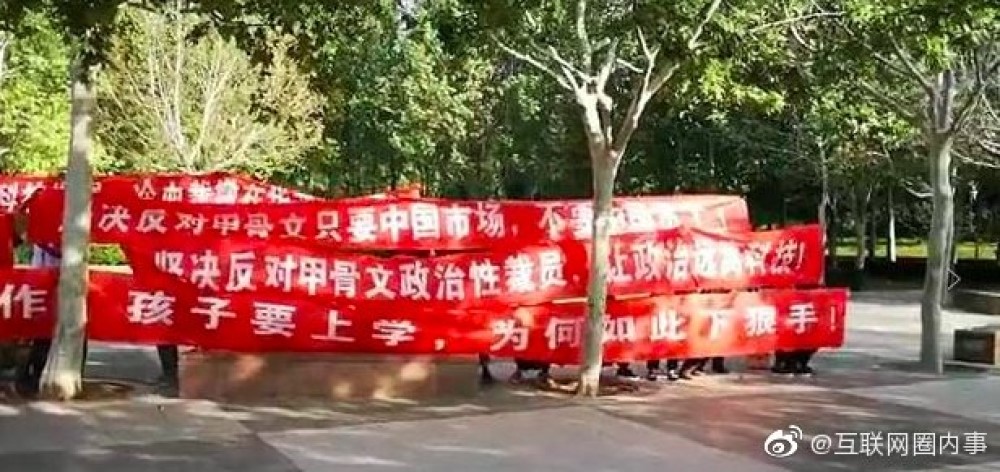Senior staff at Oracle’s Beijing research centre protest layoffs
09 May 2019Staff at US-owned tech giant Oracle's China Development Centre in Beijing have staged protests this week over the company’s plans to layoff at least 500 employees.

Oracle has offered a seemingly generous severance package but staff pointed out that the offer comes with several caveats.
If staff do not agree to the package by 22 May, they stand to lose a substantial portion of the pay-out. The current offer is "N+6" worth of monthly salary, where "N" represents the number of years employed. So, someone who was employed for four full years and was earning 20,000 yuan a month would get (4+6) X 20,000 = 200,000 yuan. After 22 May, that offer goes down to N+1 or (4+1) X 20,000 = 100,000 yuan and then just N or 80,000 yuan.
Moreover, there is a salary cap of 25,000 yuan, so staff earning more than that will still be limited to (N+6) X 25,000.
However, it is not just the compensation package that workers are concerned about. Many middle-aged employees with families are worried that they will be unable to find another job in the tech sector that traditionally favours younger workers, especially now that the tech sector is feeling the impact of the economic slowdown.
The majority of staff are migrants from outside Beijing and they are also concerned that their social insurance contributions will be interrupted thereby jeopardising their chances of obtaining much sought-after residency in the capital. They are asking Oracle to continue their social insurance payments for at least three months so as to give them a chance to find a new job and secure their continuous social insurance payments.
The protest is the latest example of dissatisfaction and unrest in the tech-sector following the widely reported anti-996 campaign by workers protesting excessively long work hours and abusive management practices.
It is further evidence that the economic slowdown is impacting a broad-spectrum of workers from low-paid sanitation and construction workers, delivery drivers and now even middle-management and senior tech employees who can earn more than ten times the wage of a street cleaner.
So far, the protests by tech workers have been relatively peaceful but if more workers are laid off, as seems likely, and the job market becomes even tighter, there is a chance that workers will be forced to adopt stronger, more direct tactics.
